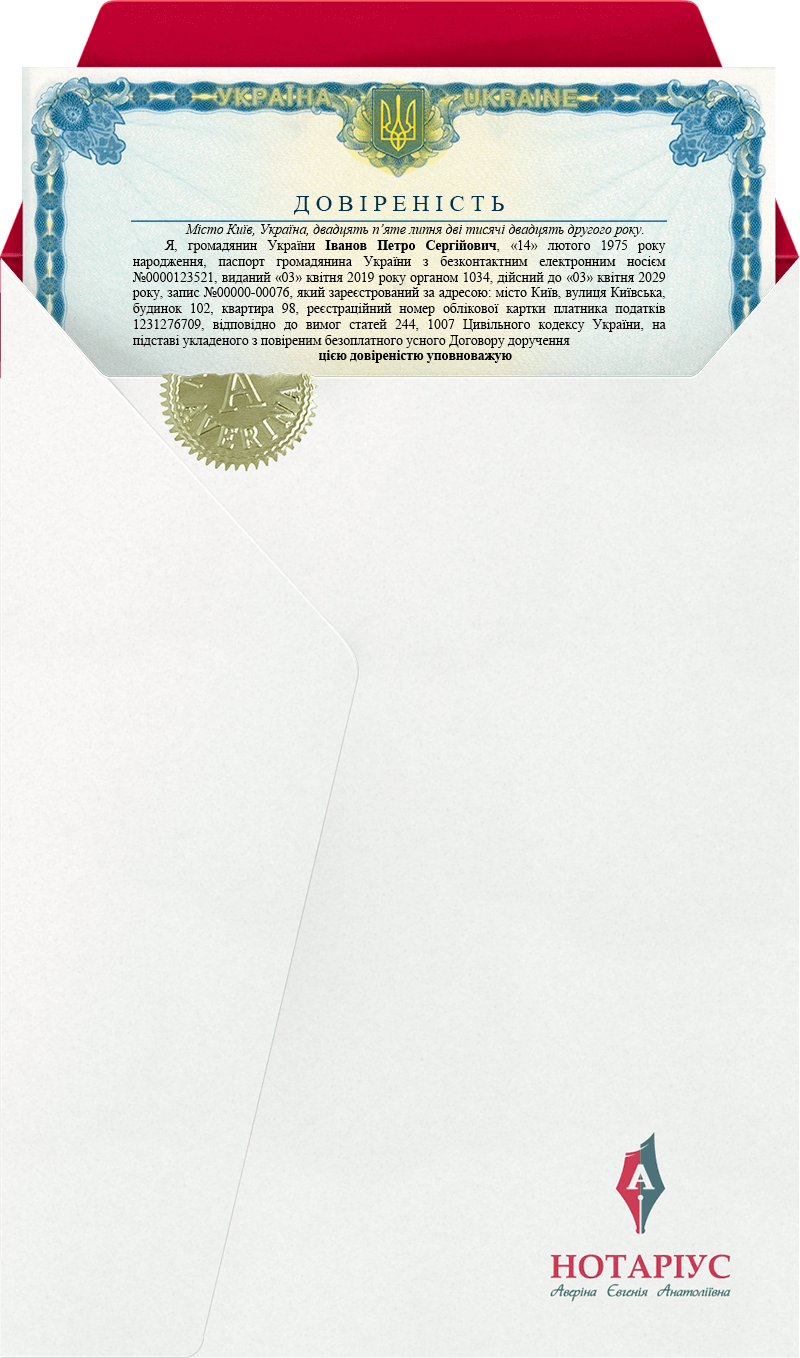You want to receive the money you are entitled to but you have no opportunity to do this personally. The perfect solution in such case is a power of attorney for receipt of money.
A power of attorney for receipt of money shall include what money exactly your attorney is entitled to receive (pension, scholarship, money from a current account in the bank, money under contractual obligations, etc.) and at what institutions, organizations, enterprises, from third persons.
Some organizations require that their exact company name is stated in a power of attorney. For a power of attorney to receipt of a pension, we recommend that you issue such power of attorney for a short period of time, whereas an attorney may be asked to confirm the fact that the principal is alive (this document is notarised as a certificate confirming that a natural person is alive).
Please note that some banks require an excerpt from the Unified Register of Powers of Attorney on the registration of the power of attorney to be presented with the power of attorney. You should consider this fact when formalising a power of attorney for receipt of money at a bank.
A power of attorney includes information on an attorney (full name and registered place of residence; his/her passport details and registration number of the taxpayer identification card (formerly called individual taxpayer number) may be additionally indicated). Therefore, to notarise a power of attorney, you need to provide a notary with the information stated above.
A power of attorney may be used to grant powers to either one or several designated persons at the same time, who will be entitled to act jointly and independently from each other.
It is important to define the scope of powers that you are going to transfer to your attorney under a power of attorney for receipt of money.

